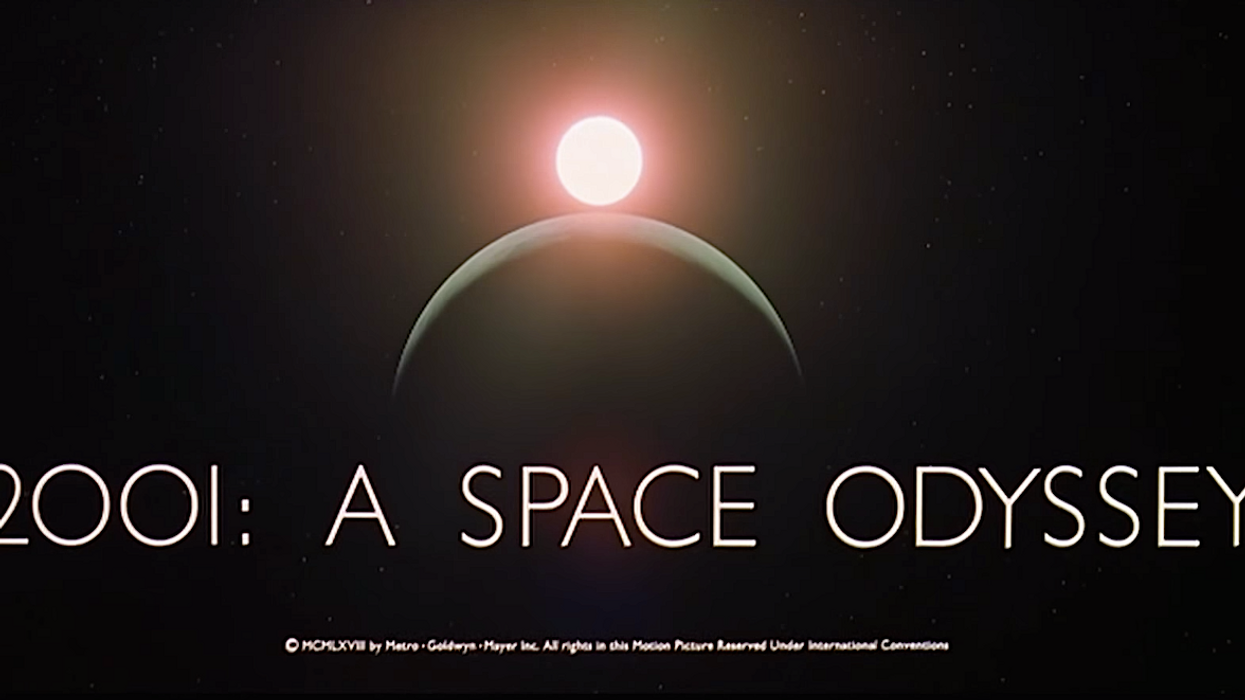The Opening Scene of '2001: A Space Odyssey' Just Isn't the Same with a Different Score
Music can be the difference between a highly memorable scene and one that leaves viewers saying, "Meh."

2001: A Space Odyssey - Original Alex North Score
It's not often that we get a chance to view a famous scene with music that didn't make the final cut. It's even rarer that that scene is a monumental one in cinema's history and features one of the most iconic pieces of music ever written. I'm talking, of course, about the opening sequence to Stanley Kubrick's 2001: A Space Odyssey, which featured the previously little-known tone poem "Thus Spake Zarathrustra" by German composer Richard Strauss.
Kubrick and company had originally commissioned seasoned film composer Alex North, whose work can be heard in classic films such as Who's Afraid of Virginia Woolf, A Streetcar Named Desire, and Spartacus, to create an original classical score for 2001: A Space Odyssey. As you're about to hear, it's not quite what Kubrick had in mind.
Although it's hard to say whether or not this particular section of North's original score was actually meant to underpin the film's opening -- I have my doubts that it was -- it's still fairly clear that the opening feels sorely lacking without the Strauss piece and that some of the cheerful, antiquated horn riffs in the score just weren't what Kubrick had in mind for his philosophical space epic.
As for how Kubrick ended up with the musical choices that we've all come to know and love (well, most of us anyway), here's what he had to say about the process in an old interview with Michel Ciment.
Why use music which is less good when there is such a multitude of great orchestral music available from the past and from our own time? When you're editing a film, it's very helpful to be able to try out different pieces of music to see how they work with the scene. This is not at all an uncommon practice. Well, with a little more care and thought, these temporary music tracks can become the final score.
When I had completed the editing of 2001: A Space Odyssey, I had laid in temporary music tracks for almost all of the music which was eventually used in the film. Then, in the normal way, I engaged the services of a distinguished film composer to write the score. Although he and I went over the picture very carefully, and he listened to these temporary tracks (Strauss, Ligeti, Khatchaturian) and agreed that they worked fine and would serve as a guide to the musical objectives of each sequence he, nevertheless, wrote and recorded a score which could not have been more alien to the music we had listened to, and much more serious than that, a score which, in my opinion, was completely inadequate for the film.
Luckily, North's original score for the film is available in multiple places and is actually a really fantastic listen for lovers of classical film scores. It's tremendously haunting and beautiful, and it's easy to imagine some of these illustrative musical cues in another film -- just not in Kubrick's 2001: A Space Odyssey.
And, just in case you haven't been thinking about this delightful cinematic moment throughout this entire article, I will leave you with this.
Source: Robert Beardsley
- What Does the Ending of '2001: A Space Odyssey' Mean? ›
- Can an iPhone Shoot Better Slow Motion Than Kubrick? ›
- The Opening Scene of '2001: A Space Odyssey' Just Isn't the Same with a Different Score ›











